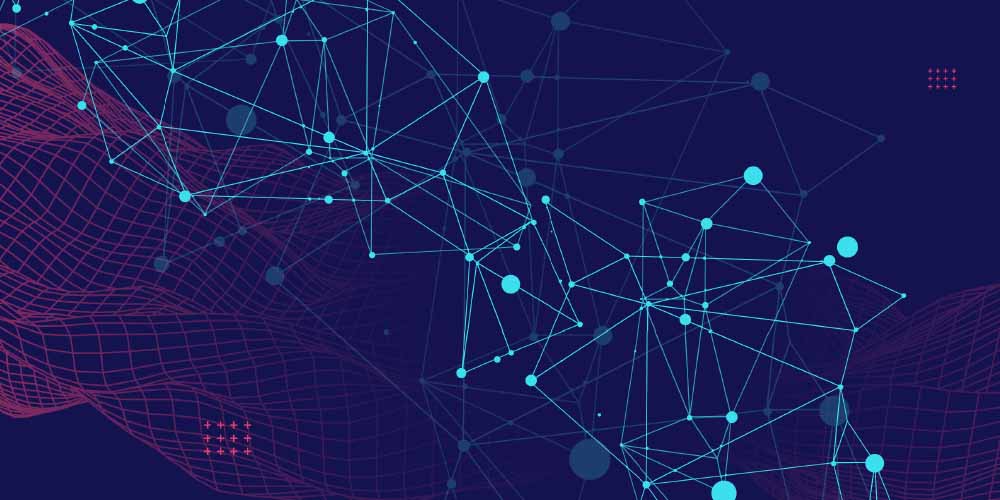Exploring the Data of Deep Learning in Data Science

Exploring the Data of Deep Learning in Data Science
Machine learning and deep learning are fascinating areas of our evolving technology landscape, but they’re not ones that are universally understood. So what is deep learning, and is it the path to computers taking over the world… Not quite! But it is an exciting time to be a data scientist.
Terms like neural networks, deep learning, and machine learning don’t represent the same technology on a purely technical level. But on a broad view, they’re each prime examples of the remarkable way data is transforming our ability to analyse and understand the world, and a valuable lesson in how a Master in Data Science could lead to the next-generation in informed insight for your career.
What is deep learning?
Deep learning is a subset of machine learning designed to enable self-learning systems that can adapt and evolve to changing circumstances. These systems work over multiple layers to identify, understand, react to and learn from data stimuli. It’s about building a system that can not only understand, but also grow and learn.
Let’s take the example of emerging driverless vehicles. If machine learning is about the vehicle recognising the data from a specific road sign that says a junction is ahead, deep learning would be that same vehicle learning to understand all the road markings, surrounding data, and applying it to evolve how and when it recognises the signs and what they mean for traffic.
Of course driverless vehicles are just one area where deep learning could unleash potential in our modern world. It could help discover new medicines, provide ways to analyse changing climates, provide voice and language recognition to improve communication, help develop new energy technologies, and a huge range of use cases that could transform the way we live and work.
Deep learning and data science
Deep learning was a term first coined in 1986, as early theories of neural networks and deep learning patterns emerged to be explored over the decades ahead.
Where deep learning covers the idea of any evolving self-learning machine learning system, neural networks is a speciality that implies looking to replicate how biological learning systems like our own brain work to develop better machine intelligence.
This all seems a bit science fiction today, but in 1986 it was revolutionary! There was only one problem… to build these networks, you need the ‘learning materials’ to truly inform their evolution.
Deep learning systems require huge amounts of training data to learn. If you just read one book on mathematics, you’re unlikely to be able to instantly understand the laws of trigonometry. That’s a whole lot of data required to educate our machine learning systems! That’s where data scientists come in.
Data scientists not only design and develop the deep learning algorithms required for the fundamental technology itself, they’re also responsible for capturing and integrating the huge wealth of data required for these systems to learn.
Now thanks to the remarkable era of data we live in, we have the tools, technology, and crucially the insight, to take deep learning to the next level. Deep learning offers even greater benefits than traditional machine learning in this environment, as it is equipped to deal with ‘unstructured’ data as and when it is generated, rather than requiring the more manicured and managed ‘structured’ data that is fed into the traditional machine learning models.
Diving deeper into the opportunities for you
The Deep Learning for Data Science module of our Master in Data Science programme will introduce you to the foundations of deep learning, helping you develop an understanding of how to build effective neural networks.
You will also learn how to lead successful commercial data science projects using deep programming frameworks, providing a real-world insight into the value of deep learning. That will include investigating a specific data science or business problem, and designing a deep learning solution for an identified business challenge.
Deep learning is a hugely exciting area of opportunity for data scientists. It is not just a door to open up career potential, but also a key to unlock powerful solutions for some of the most pressing challenges of our modern times. That means not only providing a valuable career, but fulfilling opportunities that can put you on the path to genuine positive changes for people, for businesses, and for society.
This module provides a focused dive into the value of deep learning, but the integrated nature of data and deep learning evolution means that most data scientists will be feeding into a smarter deep learning future in some form or another.
The expanding scope of deep learning is huge, with some projections saying the market size will grow from USD12.3bil in 2020 to USD60.5bil by 2025. These eye-catching numbers are just a big dollar sign explanation of the remarkable potential this technology has. A Master in Data Science from Sunway University Online could be your ticket to board this journey, and create even greater depths of value in deep learning technology.





